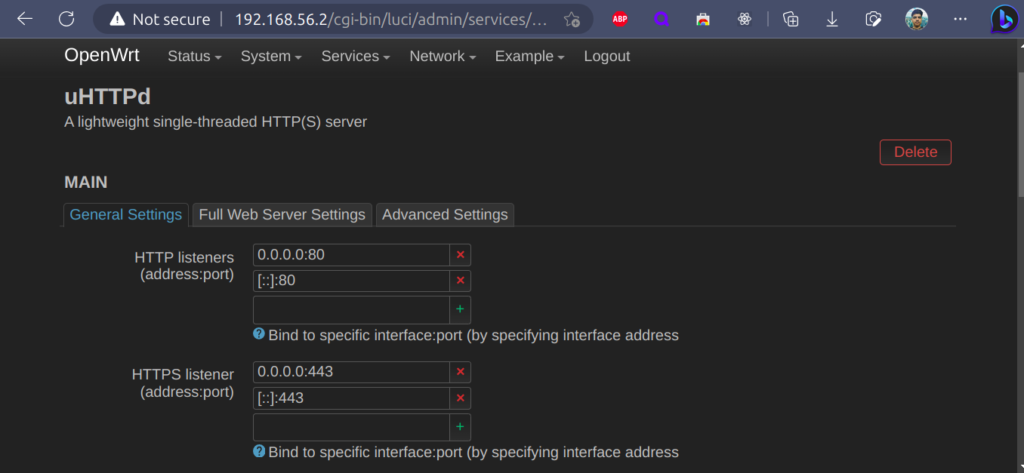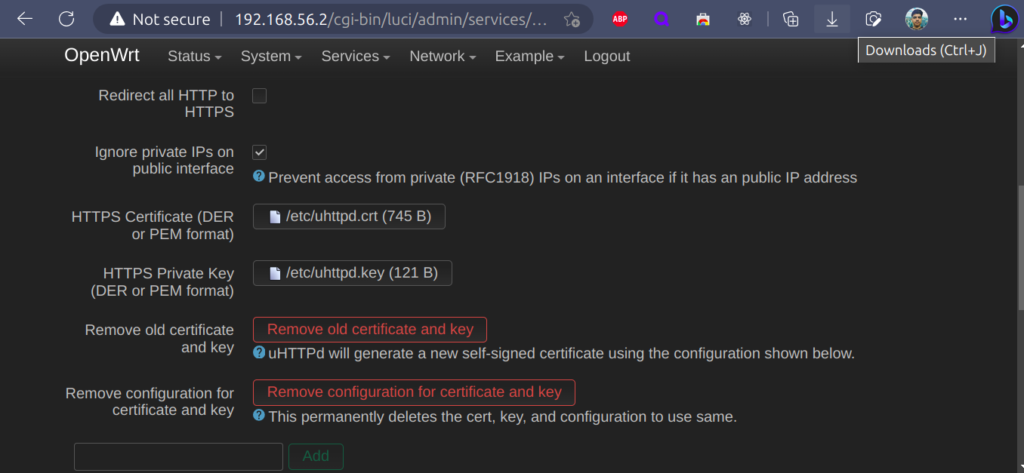Project Details
LuCI is an open-source framework that is widely used to build web interfaces for embedded devices such as WiFi routers. In the CBI based old system, pages were rendered on the router and delivered as HTML to the browser, which causes a higher load on the embedded devices. This makes the system less efficient and can lead to performance issues.
To facilitate this migration, LuCI provides LuCI-JavaScript API that will be used to build web interfaces that can be rendered in the browser. Additionally, data will be provided via RPCD and UBUS. The project will involve writing new RPCD services to provide data to the client side that was formerly used directly on the router.
Project Goals
The migration of LuCI to a JavaScript-based framework will bring numerous advantages to the OpenWrt community and other users of OpenWrt-based devices. One of the primary benefits is enhanced performance and reduced load on embedded devices, such as WiFi routers. By shifting the rendering of pages to the client-side using JavaScript, instead of on the router, the workload on the router will be decreased, resulting in a better user experience, particularly for users with lower-specification routers.

Another benefit of the new system is increased flexibility for developers. The utilization of a client-side JavaScript framework provides developers with more options for customization and extension of the LuCI web interface in the future. It also establishes a standardized approach for developers to interact with the router’s services, retrieve or set configuration data, and facilitate the development and maintenance of LuCI-based applications.
Community networks, which often rely on lower-specification devices, can greatly benefit from these improvements. The improved performance and reduced load on devices will make it easier for community networks to manage and maintain their networks using LuCI-based tools.
In summary, the migration of LuCI to a JavaScript-based framework will bring significant benefits to the community and users of OpenWrt-based devices. These benefits include improved performance, increased flexibility for developers, and potentially easier management of LuCI-based applications for community networks.
Project Progress
I successfully migrated luci-app-uhttpd to JavaScript, gaining valuable experience and insights from the process which will help to migrate more advanced applications. It improved performance, enhanced user experience, and provided with greater flexibility as a developer. I’m excited to continue contributing to the growth of LuCI and further advancing OpenWrt.


I am currently working on the migration of luci-app-olsr to a JavaScript-based framework. It has been an engaging and exciting experience so far. By leveraging JavaScript, I aim to enhance the performance, usability, and customization options of the web interface for olsrd. I am excited to contribute to the improvement of this essential tool for mesh routing and network management on OpenWrt-based devices.
Community Bonding Period
During the GSoC community bonding period, I have had an incredible learning experience. I have been fortunate to have constant communication and guidance from my mentor, Andreas Bräu, who has been exceptionally supportive throughout the process. Whenever I face challenges or got stuck, my mentor is there to provide valuable insights and assistance. Additionally, this journey has allowed me to become more familiar with the OpenWrt and Freifunk communities, providing me with a broader understanding of the ecosystem and related technologies. The community bonding period has been instrumental in preparing me for the successful migration of future applications and has fostered valuable connections within the community.
One thought on “GSoC’23 : LuCI Migrate to JavaScript-Based Framework”